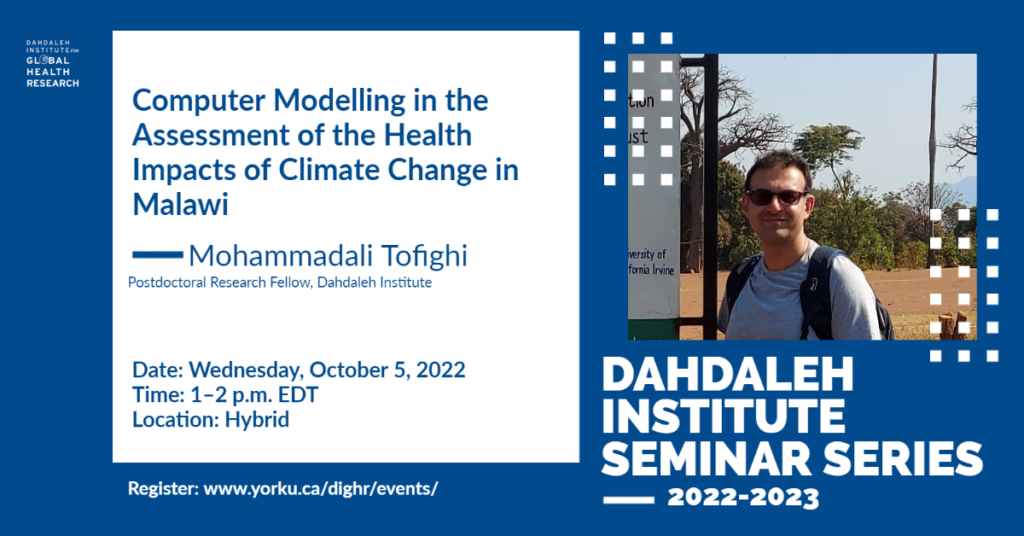Computer Modelling in the Assessment of the Health Impacts of Climate Change in Malawi, with Mohammadali Tofighi
In this seminar, Mohammadali Tofighi will introduce an agent-based computer model for studying the health impacts of climate changes in the Lake Chilwa Basin. He will present an overview of the model's features and capabilities and discuss the challenges in developing and verifying the model and the road map that could be used to address these challenges.

Malawi is a land-locked country in the south of Africa with a total area of 118,484 km² and a population of 20 million people. Malawi, and particularly the Chilwa Basin in the south of Malawi (approximately 8,800 km² and 1 million people), has been highly affected by global climate change over the past few decades. The region has seen a range of devastating climate shocks, and their frequency is increasing. The most prominent shocks are irregular rainfall, drought, prolonged dry periods, and high winds.
The changing climate has significant negative impacts on the economy and human health, including population displacement, disruptions in the delivery of healthcare services, increasing prevalence of infectious diseases, and both acute and chronic malnutrition.
The Dahdaleh Institute's complex adaptive modelling project aims to understand and shed light on the relationship between climate change and health impacts (infectious diseases: malaria, cholera, schistosomiasis, and acute diarrheal disease) and food security in the Lake Chilwa Basin.
Computer simulation models are increasingly being proposed as efficient tools for predicting variations in climate indicators. Recently, they have been used to study the variety of impacts of climate change. They can provide a safe environment for researchers, decision-makers, policymakers, and other stakeholders to examine different scenarios of climate change and to monitor the impacts and evaluate solutions, prevention methods, and adaptation interventions.
Register below and join us on Wednesday, October 5, at 1 p.m.
Speaker profile:
Mohammadali Tofighi is a postdoctoral research fellow at York University. He holds a PhD in civil engineering - water resources management from Sharif University of Technology, Iran. He has worked as an adjunct assistant professor at the Sharif University of Technology and assistant professor at the Ale-Taha Institute of Higher Education, Iran.
Mohammadali has expertise in water resources management, particularly water-related disaster management and modelling. He has participated in numerous multidisciplinary projects in flood modelling, disaster management, health care modelling, and risk analysis. He is interested in integrating simulation approaches such as agent-based and discrete events modelling, system dynamics, and machine learning methods for a better understanding of the behaviour of the systems.
RSVP
Registration for this event has ended.Thank you for your interest in this seminar.
Please find the recap and recording here.

